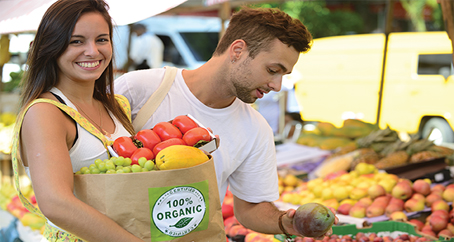le can be found with a few apple varieties.
“Everyone wants organic Honeycrisp apples, which are usually considerably higher in price than conventionally grown Honeycrisps,” cites Mike Jardina, president of receiver J.J. Jardina Company, Inc. in Atlanta, GA. On the other hand, there are pears. “Organic pears are just a few dollars higher per box than conventionally grown pears.”
What About Greenhouses and Hydroponics?
The role of greenhouse and hydroponic grown organic produce—which some people believe are synonymous—remains somewhat limited, but is expanding. While many greenhouse growers are hydroponic, they are not organic due to use of some chemicals.
The National Organics Standards Board, which advises the USDA’s National Organic Program states that, with very few exceptions, “Potting mixtures devoid of or deficient in organic matter capable of supporting a natural and diverse soil ecology are prohibited. For this reason, hydroponic and aeroponic systems are prohibited.”
Nevertheless, Goodness Greeness’ Scaman explains, “Controlled environments have increased production. For example, colored bell peppers have increased four-fold over the last ten years. Turning a greenhouse organic is easier than outside acreage.” Still, for many growers, cultivating organic fruits and vegetables in soil is the only option.



